The Department of Pharmacy Practice is the quintessential area where curriculum meets professionalism. The Department emphasizes a standard code of professional ethics be attained in all the areas that comprise pharmaceutical care, health care administration, patient assessment, and experiential education. Pharmacy practice faculties teach throughout the curriculum and many act as preceptors for students concluding their last year on rotations. These rotations experiences include acute care, ambulatory care, pediatrics, community, and drug information.
Vision Statement
“Becoming a leader in Pharmaceutical Care, Pharmacotherapy, and Research among the Historical Black Colleges and Universities”
Historical Black Colleges and Universities have a long and astounding tradition in the field of Pharmacy and here at Hampton University we strive to be the leader in the development of new ideas for pharmacy practice. Our vision is to develop a pharmaceutical care center to; improve patient outcomes in a cost-effective manner, contribute to the modalities of pharmacotherapeutic changes, and optimize clinical research that benefits human healthcare.
Mission Statement
The Department of Pharmacy Practice is committed to the concept of producing graduates who accept responsibility to serve society by providing services to achieve optimal therapeutic outcomes through the appropriate and evidence-based use of medications, devices, and information.
Department Values
“Becoming a leader in Pharmaceutical Care, Pharmacotherapy, and Research among the Historical Black Colleges and Universities”
Historical Black Colleges and Universities have a long and astounding tradition in the field of Pharmacy and here at Hampton University we strive to be the leader in the development of new ideas for pharmacy practice. Our vision is to develop a pharmaceutical care center to improve patient outcomes in a cost-effective manner, contribute to the modalities of pharmacotherapeutic changes, and optimize clinical research that benefits human healthcare.
Integrity
Integrity is the honest quest for, and application of, one’s value system. Here at Hampton University, integrity is not only embodied internally but also extends beyond our academic environment. We, as faculty, will strive to lead by example and deliver these same standards to the pharmacy community and to society as a whole.
Diversity
At Hampton University School of Pharmacy, we deeply value diversity in background, strengths, interests, and experiences. It is these differences that foster healthy debate and further our personal and professional development. We continually strive to contribute to the health community by providing perspective based on a range of ideas and practices, and our success will be measured by the inclusion of all voices.
Rigor
Rigor instills excellence. Hampton students seek academic and personal development challenges that place us outside of our comfort zone. High expectations and stretching goals are the standards that we have chosen for each other and ourselves. Extreme professional hurdles separate talent from the masses, and Hampton students will excel because of our rigorous preparation.
Performance Goals
The goals for the Department of Pharmacy Practice are as follows:
- Develop innovative teaching and testing methods for courses taught in the department.
- Develop effective strategies to improve communication, cooperation, and delivery of instruction in team taught courses.
- Develop terminal objectives for each course and relate to educational objectives for the ACPE.
- Emphasize and incorporate critical thinking skills into all department courses.
- Develop a faculty development and mentoring program for new and junior faculty.
- Develop a research-training institute for the support of faculty.
- Develop a NAPLEX review course for students.
- Develop all facets of the professional program.
- Increase faculty base by forming partnerships, such as faculty sharing, with affiliated pharmacy practice sites.
- Ensure the computer literacy of the entire faculty; will incorporate computer technology component into all applicable courses.
- Integrate a clinical application component in basic science courses, such as using case studies to teach anatomy and physiology.
- Raise the level of pharmacy in Virginia by:
- Participating and developing local professional pharmacy organizations.
- Re-training pharmacists to accept new pharmacy practice roles through continuing education, in-service education, and special educational certification programs.
- Providing drug information services to all pharmacists in the state; establish satellite centers at selected facilities.
- Develop pharmacy outreach programs to underserved populations in the state such as Eastern Shore region.
- Provide clinical consulting services for institutions such as Pharmacoeconomics.
Mission Statement
The mission of the Department of Pharmaceutical Sciences is to provide an environment where students can acquire the knowledge and skills in pharmaceutical sciences that are necessary to be proficient as entry-level pharmacy practitioners. The mission is to also develop a vigorous and sustainable biomedical sciences research program
Vision Statement
The vision of the Department of Pharmaceutical Science is to provide high quality pharmacy education that will enable our graduates to be exemplary professionals. As professionals, they will positively impact health issues nationally and worldwide. In order for Hampton University School of Pharmacy to secure our position as a premiere institution for biomedical sciences research. Our vision is to secure a premiere position as one of the top institutions for biomedical science research.
Goals and Objectives
- Promote the achievement of the school’s program essential competencies
- Foster development of supplemental structured learning activities longitudinally throughout the didactic curriculum
- Utilize a variety of active learning strategies that are designed to foster critical thinking skills
- Promote life-long learning
- Engage in the scholarship of teaching, discovery, application, and integration
- Achieve and maintain adequate extramural support for teaching and research
- Continue to publish in high impact journals
- Promote student participation in scholarly activities
- Engage in activities that promote the school and university in the community
- Participate in continuing education and health awareness campaigns
- Organize and participate in outreach and community service activities
- Organize and participate in science and technology activities in the community
- Facilitate faculty and staff development activities
- Provide mentorship to enhance skills and abilities
- Participate in professional and scientific meetings and workshops
- Promote membership and active participation in professional organizations
Experiential Education Goals
Primary Goal
The primary goal of the Office of Experiential Education is to provide outstanding experiences in pharmaceutical care to students in the School of Pharmacy at Hampton University. The School of Pharmacy is committed to raising the bar in the pharmacy profession. Appropriate training of the students of today is the avenue to raising standards and expectations of pharmacy practice. The Office of Experiential Education provides quality sites for students to put into practice the information that they have received throughout the innovative curriculum. The Office of Experiential Education also serves as a vital link between the School of Pharmacy and the practicing pharmacists in the State of Virginia and throughout the United States.
Secondary Goal
The second goal of the Office of Experiential Education is to coordinate the Professional Development portion of the pharmacy curriculum. The Professional Development Series provides structured instruction on the development of professional behavior and attitude. The Pharmaceutical Care Series provides meaningful instruction to the students every semester of the professional curriculum. Topics covered include decorum; expectations and requirements of professionalism; development of prospective employment packets such as resumes and personal statements; attainment of career enhancing opportunities such as internships and residencies; and exposure to the principles and techniques of leadership, management, and personnel development. In addition, the Office of Experiential Education coordinates the Pharmacy Career Fair, interviews, and Post-Graduate Training Awareness Days.
Tertiary Goal
The third goal of the Office of Experiential Education is to expose students to the various areas of pharmacy practice and the expanding roles and responsibilities of pharmacists in our evolving health care environment. The Office of Experiential Education assists in coordinating and disseminating information, experiences, and exposures to students relative to the various areas of practice available to pharmacists.
Other Goals
- To ensure excellence in teaching and mentorship from those entrusted with the responsibility of cultivating pharmacy students.
- To ensure the achievement of competence in the field of pharmacy practice through the provision of comprehensive pharmaceutical care.
- To promote the pharmacy preceptor and student as integral members of the health care team.
- To foster harmonious relationships between Hampton University School of Pharmacy and the larger pharmacy community.
- To provide instruction to students relative to basic principles of professionalism, attainment of professional behavior and attitudes, and preparation for professional employment.
- To provide opportunities for students to become familiar with the expanding roles of pharmacists in various areas of pharmacy practice.
- To provide stimulation for students to pursue additional training and post-graduate education, as well as foster participation in life-long learning.
- To utilize modern technology to create a paperless working environment using computerization and the Internet to provide many of the Office’s services
Office of Experiential Education e-mail: husopreceptors@hamptonu.edu



